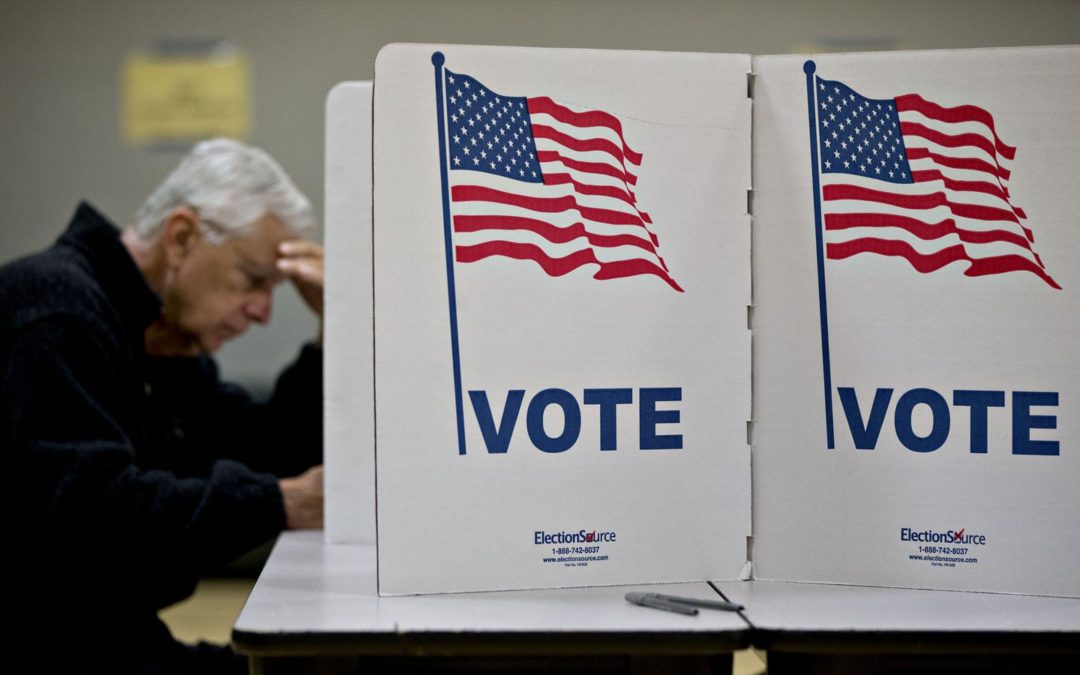Ranked Choice Voting certainly isn’t my first pick if I was given the choice of unilaterally changing a country’s method of voting, but for the United States I think it’s best.
America, much like the United Kingdom and Canada, has a broken was of electing its officials at every level of government. First Past the Post, or the method of voting for whomever wins the most, but not a majority of, votes is a broken and frankly undemocratic system of voting no matter where it’s in play. No candidate should win office when they get less than 50% of the vote in their respective race.
So, what is ranked choice voting for those who may be unclear on the topic? It’s very simple really.
Say there’s four candidates in a race. If one of those four candidates win 50% of the vote then they win outright and there’s no need to go down the ranked ballot list. However, if none of the candidates win 50% of the vote on the first round then the ranked ballot system would kick in. Whoever got the least amount of votes would be eliminated and their second-choice votes would be redistributed among the other three candidates. If no candidate has a majority after that, then it continues until one candidate wins 50% of the vote.
Ranked choice allows for a huge array of candidates while still ending in a result wherein people agree on a candidate to the point that that candidate receives at least 50% of the vote. So why is this an improvement over the current system?
Firstly, it lets people vote their values and their conscious. Let’s use myself as an example and how I would vote if I was in any given state.
Under the current electoral system, I’d personally be voting for Democrat first and foremost because I want to keep Republicans out of office. But when the presidential candidate is Biden of all people, he’s certainly not my first pick, far from it. But given the electoral system in place in the United States my voting mindset is more focused on preventing the opposing party, that being Trump, from winning so I vote Biden as a pre-emptive measure. Sounds about right, correct? There’s probably plenty of people in this same boat. Yet, my voting pattern would change if ranked choice voting was in play.
Under ranked choice voting my first vote would go to the Green candidate instead of the Democrats. As a left-leaning voter I feel my values and policy preferences are much more accurately represented by the Greens than they could ever be by the current incarnation that is the Democratic party. But, I would still rank the Democratic candidate as my second choice, Libertarian third and Republican fourth if we’re going based on the traditional four-party system. Chances are my second-choice vote for the Democrat will put them over the edge but my primary vote for the Green candidate will, at the very least, send a signal that I’m discontent with the Democrats and would much rather vote for another party over them.
There’s a lot of ramifications that could come from such a way of voting. The electoral system would, very likely, see the introduction of new parties representing more specified policy positions in contrast to the two-party system where both parties are big-tent parties and very vague on many issues. On top of that, more members of alternative parties would likely find their way into local, state and federal elected bodies. Under ranked choice voting I wouldn’t be surprised to see a few Greens or Libertarians making their way into Congress in a decade after the system is implemented.
Additionally, changing the voting system to one in which people can safely vote for their preferred candidate deflects negative partisanship, the practice of voting for a candidate to block another candidate instead of voting for that candidate because you agree with their positions.
For the time being, even under ranked choice the Democrats and Republicans would, by far, still be the dominant parties. But they would see their influence slowly diminish as new parties enter the mix and coalition governments become more likely. But that’s another reason why I think ranked choice benefits the American political system anyways. Republicans sometimes vote with Democrats on policy proposals and vice versa and by adding new voice in allow for more avenues to pass legislation.
How America conducts its democracy isn’t perfect and probably never will be. But American democracy is broken and needs a number of changes and the way in which Americans vote can, and would, dramatically improve the health of American democracy.

